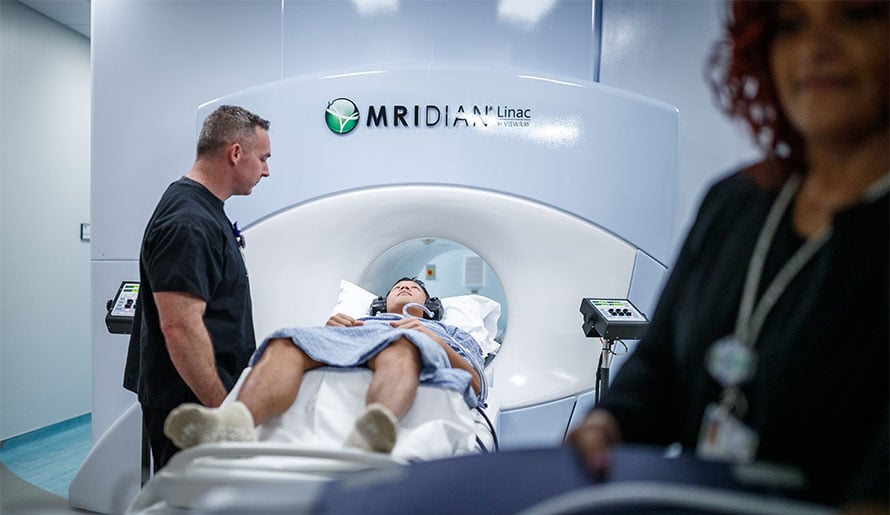Radiation Oncology Residency Program

The Radiation Oncology Residency Program at Moffitt Cancer Center is sponsored by the University of South Florida Office of Graduate Medical Education. Moffitt Cancer Center serves as the primary training site and assumes ultimate responsibility for the residency program. The James A. Haley Veterans' Administration Hospital and the University of Florida Proton Therapy Institute in Jacksonville, Florida, serve as participating training institutions (three months each). The residency complies with all requirements of the American Board of Radiology and is accredited by the Accreditation Council for Graduate Medical Education (ACGME). The curriculum and goals and objectives are competency-based and broken down by PGY level to include specific objectives as required by the Radiation Oncology Review Committee.
The four-year residency training program in radiation oncology follows the successful completion of a required PGY1 training program in internal medicine, family practice, obstetrics/gynecology, surgery or surgical specialties, pediatrics, or a transitional-year. (This year is not combined with our residency; applicants are to apply separately to such programs.) USF does have an internal medicine preliminary year specifically for anyone accepted for residency in radiation oncology for which you may apply.
The goal of the residency program is to develop skilled physicians in Radiation Oncology. Our program supports highly specialized faculty within each disease site and utilizes the newest treatment techniques and advanced equipment to ensure superb training focused on multidisciplinary collaboration and patient care.
Radiation Oncology Residency Program Highlights
| High-Volume Cancer Center | |
| Dedicated Proton/Pediatric Rotation | |
| Generous Support for Research and Conference Attendance | |
| MRI Linac with Training Elective |
|
| Formal Leadership Training Course |
Moffitt Cancer Center History
Moffitt was only founded in 1986, but it has led the way in interdisciplinary cancer care. Since its inception, its departments have been organized by disease site, not by treatment modality. Consequently, the disease-site specialists work as a coordinated unit and share the same office and clinic space, which is not typical of most centers. Most departments have interdisciplinary clinics to evaluate new patients at a single appointment. Each department holds one or more tumor boards per week. Specific Radiation Oncology faculty have appointments in each of these departments.
Moffitt affords numerous research opportunities for our medical students, residents, and fellows. Years ago, it created a prospective study called Total Cancer Care which is offered to every new patient. All patient information, imaging, tumor samples, genetic information, treatment information, and outcomes are part of the study. The protocol has since been expanded to encompass a number of other cancer centers as well, as part of the ORIEN Network. These data are available to residents/fellows.
Program Director
Jessica Frakes, MD
Assistant Program Director
Stephen Rosenberg, MD
Chair, Department of Radiation Oncology
Kosj Yamoah, MD, PhD
GME Program Administrator
Angie Courtney C-TAGME
Radiation Oncology
Angie.Courtney@Moffitt.org
Radiation Oncology Residency Program
